
- Subject:
- Social Science
- Material Type:
- Module
- Author:
- OpenStax College
- Date Added:
- 07/18/2021

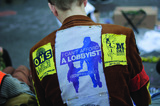


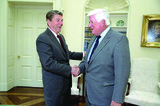



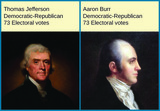





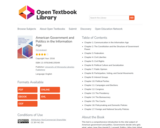
This text is a comprehensive introduction to the vital subject of American government and politics. Governments decide who gets what, when, how (See Harold D. Lasswell, Politics: Who Gets What, When, How, [New York: McGraw-Hill, 1936]); they make policies and pass laws that are binding on all a society’s members; they decide about taxation and spending, benefits and costs, even life and death.Governments possess power—the ability to gain compliance and to get people under their jurisdiction to obey them—and they may exercise their power by using the police and military to enforce their decisions. However, power need not involve the exercise of force or compulsion; people often obey because they think it is in their interest to do so, they have no reason to disobey, or they fear punishment. Above all, people obey their government because it has authority; its power is seen by people as rightfully held, as legitimate. People can grant their government legitimacy because they have been socialized to do so; because there are processes, such as elections, that enable them to choose and change their rulers; and because they believe that their governing institutions operate justly.Politics is the process by which leaders are selected and policy decisions are made and executed. It involves people and groups, both inside and outside of government, engaged in deliberation and debate, disagreement and conflict, cooperation and consensus, and power struggles.In covering American government and politics, this text introduces the intricacies of the Constitution, the complexities of federalism, the meanings of civil liberties, and the conflicts over civil rights;explains how people are socialized to politics, acquire and express opinions, and participate in political life; describes interest groups, political parties, and elections—the intermediaries that link people to government and politics; details the branches of government and how they operate; and shows how policies are made and affect people’s lives.

This collection uses primary sources to explore American Indian boarding schools. Digital Public Library of America Primary Source Sets are designed to help students develop their critical thinking skills and draw diverse material from libraries, archives, and museums across the United States. Each set includes an overview, ten to fifteen primary sources, links to related resources, and a teaching guide. These sets were created and reviewed by the teachers on the DPLA's Education Advisory Committee.
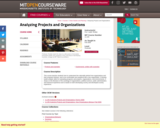
This course teaches students how to understand the rationality behind how organizations and their programs behave, and to be comfortable and analytical with a live organization. It thereby builds analytic skills for evaluating programs and projects, organizations, and environments. It draws on the literature of the sociology of organizations, political science, public administration, and historical experience-and is based on both developing-country and developed-country experience.

This course focuses on alternative ways in which the issues of growth, restructuring, innovation, knowledge, learning, and accounting and measurements can be examined, covering both industrialized and emerging countries. We give special emphasis to recent transformations in regional economies throughout the world and to the implications these changes have for the theories and research methods used in spatial economic analyses. Readings will relate mainly to the United States, but we cover pertinent material on foreign countries in lectures.

This book provides an introduction to the study of meaning in human language, from a linguistic perspective. It covers a fairly broad range of topics, including lexical semantics, compositional semantics, and pragmatics. The chapters are organized into six units: (1) Foundational concepts; (2) Word meanings; (3) Implicature (including indirect speech acts); (4) Compositional semantics; (5) Modals, conditionals, and causation; (6) Tense & aspect.
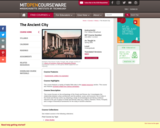
This course focuses on the archaeology of the Greek and Roman city. It investigates the relationship between urban architecture and the political, social, and economic role of cities in the Greek and Roman world. Analyzes a range of archaeological and literary evidence relevant to the use of space in Greek and Roman cities (e.g. Athens, Paestum, Rome, Pompeii) and a range of theoretical frameworks for the study of ancient urbanism.